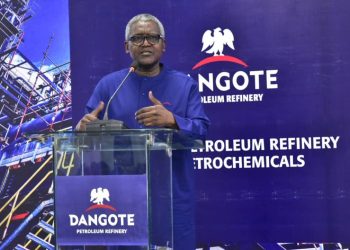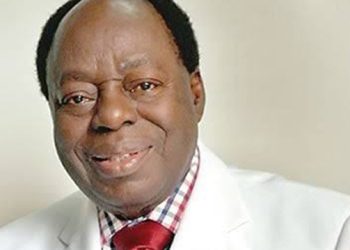Washington, DC — The International Monetary Fund has urged Nigeria to deepen macroeconomic and fiscal reforms, warning that rising debt-service costs, weaker oil receipts and tighter global financing could squeeze growth and social spending.
Presenting the Regional Economic Outlook for Sub-Saharan Africa at the IMF–World Bank Annual Meetings on Monday, Dr. Abebe Selassie, Director of the IMF’s African Department, said regional growth is projected at 4.1% in 2025, with a modest pickup in 2026. But he cautioned that pressure points persist across the continent — and in Nigeria in particular.
“Nigeria, like many countries in the region, has made commendable progress in macroeconomic stabilisation and reform implementation. However, rising debt service costs are crowding out development spending, and fiscal space is tight,” Selassie said.
Revenue first, with trust and equity
Selassie identified domestic revenue mobilisation as Nigeria’s top priority, urging:
- Digitalisation of tax administration and stronger compliance,
- Simplification to broaden the base rather than raise headline rates,
- Visible, equitable use of revenues in education, health and infrastructure to rebuild public trust.
“It is not just about increasing taxes; citizens must see that revenues are being used effectively,” he noted.
Oil headwinds, diversification imperative
While prices for some commodities such as gold and copper remain elevated, oil prices have trended lower, intensifying fiscal pressures for oil-reliant Nigeria. Selassie said the divergence underscores the need to diversify the economy and revenue sources to reduce dependence on hydrocarbons.
Publish what you owe
Calling for transparent and prudent debt management, Selassie urged Nigeria to:
- Publish comprehensive, timely debt statistics (including guarantees and SOE liabilities),
- Strengthen public financial management and budget oversight,
- Reform state-owned enterprises to curb fiscal leakages and reduce borrowing costs.
He noted that around 20 Sub-Saharan African countries are at high risk of debt distress, making clarity and discipline essential to attract affordable finance and rebuild buffers.
Plug illicit outflows
On illicit financial flows, Selassie warned that corruption, trade misinvoicing and regulatory loopholes continue to drain vital revenues.
“These flows must be addressed through targeted reforms — strengthening financial oversight, improving transparency, and tightening loopholes that allow funds to leave the continent undetected,” he said.
Bottom line: The IMF sees Nigeria’s reform trajectory as positive but stressed that bigger, cleaner revenues and clearer debts are critical to protect the vulnerable, sustain growth and navigate a tougher global financing environment.





















